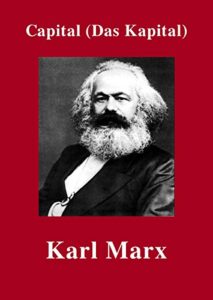No wonder people talked about how hard it was to become wealthy. Even trying to study how people did it was not easy. The economics textbook was the thickest amongst all the subjects I was taking. In fact, it was the biggest book I had ever seen: it could not be fit into any school bag but could hold our bedroom door open by its own. Yet there were still extra readings for almost every class. So maybe the textbook writer had been very considerate already. My little vocabulary book, after a quiet summer, became busy again. But this time, I started to write the explanation in English rather than Chinese. The Chinese translation of words like duopoly[1] made even less sense to me than its English definition. Maybe these words were weird within English as well, but as all new English words were strange to me, that was not a problem.

The syllabus itself was eye opening. In China, we learnt capitalism was evil. There was a paragraph from Max’s Capital we all had to memorize word for word: “…100% [profit] will make it [the capitalist] ready to trample on all human laws; 300 percent [profit], and there is not a crime at which it [the capitalist] will scruple, nor a risk it will not run, even to the chance of its owner being hanged.” Here, we learned that if there was free competition, no producer would make any profit and consumers would enjoy the goods and services at cost. Such a state where people would work for the whole society for free, if anything, sounded a lot like the ideal Communism state China and former USSR were trying to build. Why did capitalism and communism had to fight and bad mouth each other for so long then?
Anyway, it was only the monopoly and the duopoly who were bad as they would limited output deliberately to raise price and maximise their profit. When the teacher asked how those decisions about output and price were made in China, I answered till the last 10 years or so, the government kind of controlled both quantity and price. As a consumer, you could only buy a set amount of wheat, egg, cooking oil etc at certain price a month. Or if you were a farmer, you had to sell a certain amount of grain to the government every year at a very low price. “What would you call that, sir?” Our teacher gave it some thought and replied: “I think we would call it robbery here in England.”
The most challenging part of the subject, however, was how the exams and quizzes were structured. While the first part of any exam involved doing some calculations and drawing some graphs, the questions at the end with the most points inevitably asked us to evaluate or assess a statement. But what did those words mean? My Chinese dictionary said it meant to calculate which was probably wrong given there was no numbers in the questions. But the English dictionary was not much helpful neither. It said “evaluate” meant “assess” and then “assess” in turn meant “evaluate”. Although that was very consistent, I still had no idea how to do it. In the quiz this week, the question asked us to assess the impact of a policy on the market. After receiving my terrible mark afterwards, I had to go to the teacher to seek some question, “I still don’t know how to answer that question, Sir. Should the answer be the policy will have a large impact?”
“Not necessarily.”
“Does that mean the policy will not have much impact then?”
“Not necessarily neither.”
“Does that mean the question has no answer?”
“Of course there is an answer! Otherwise, why would I put it in your quiz. You just need to evaluate it.”
“Errrr…. OK…., I will try.”
Score: Me: 8, English: 5,524
[1] 双寡头垄断